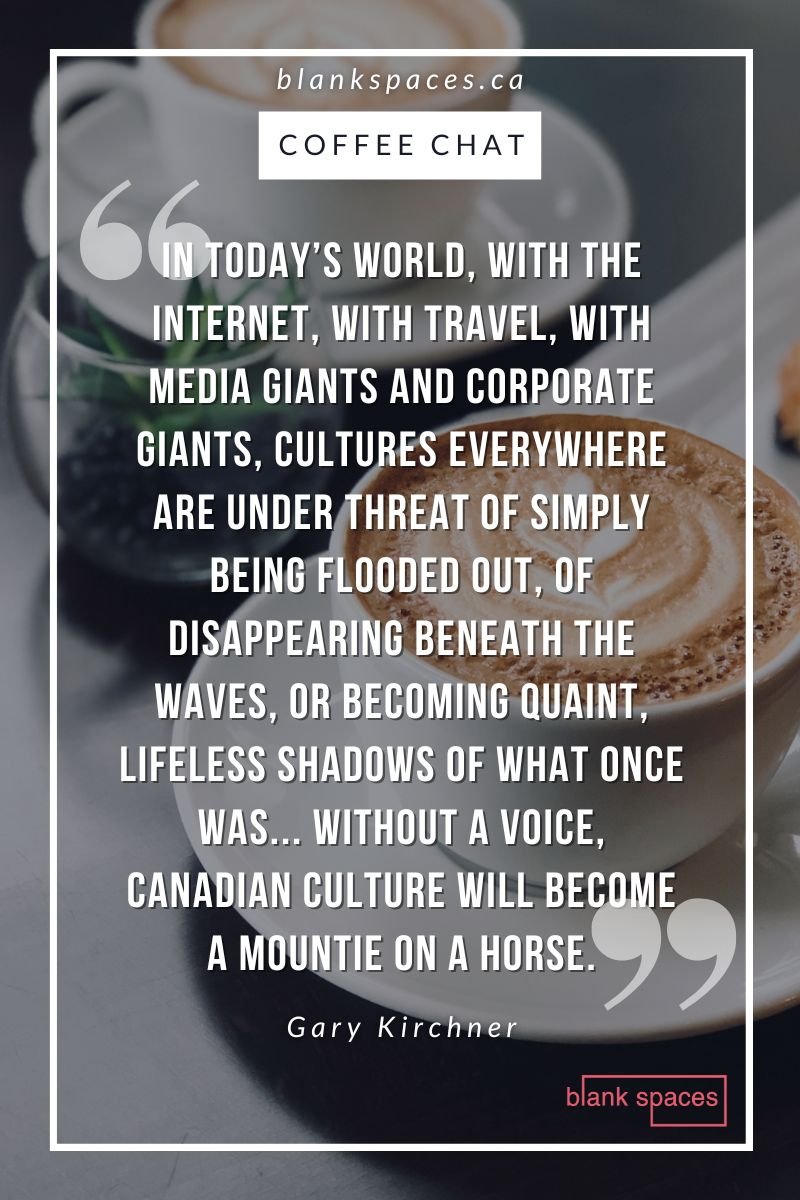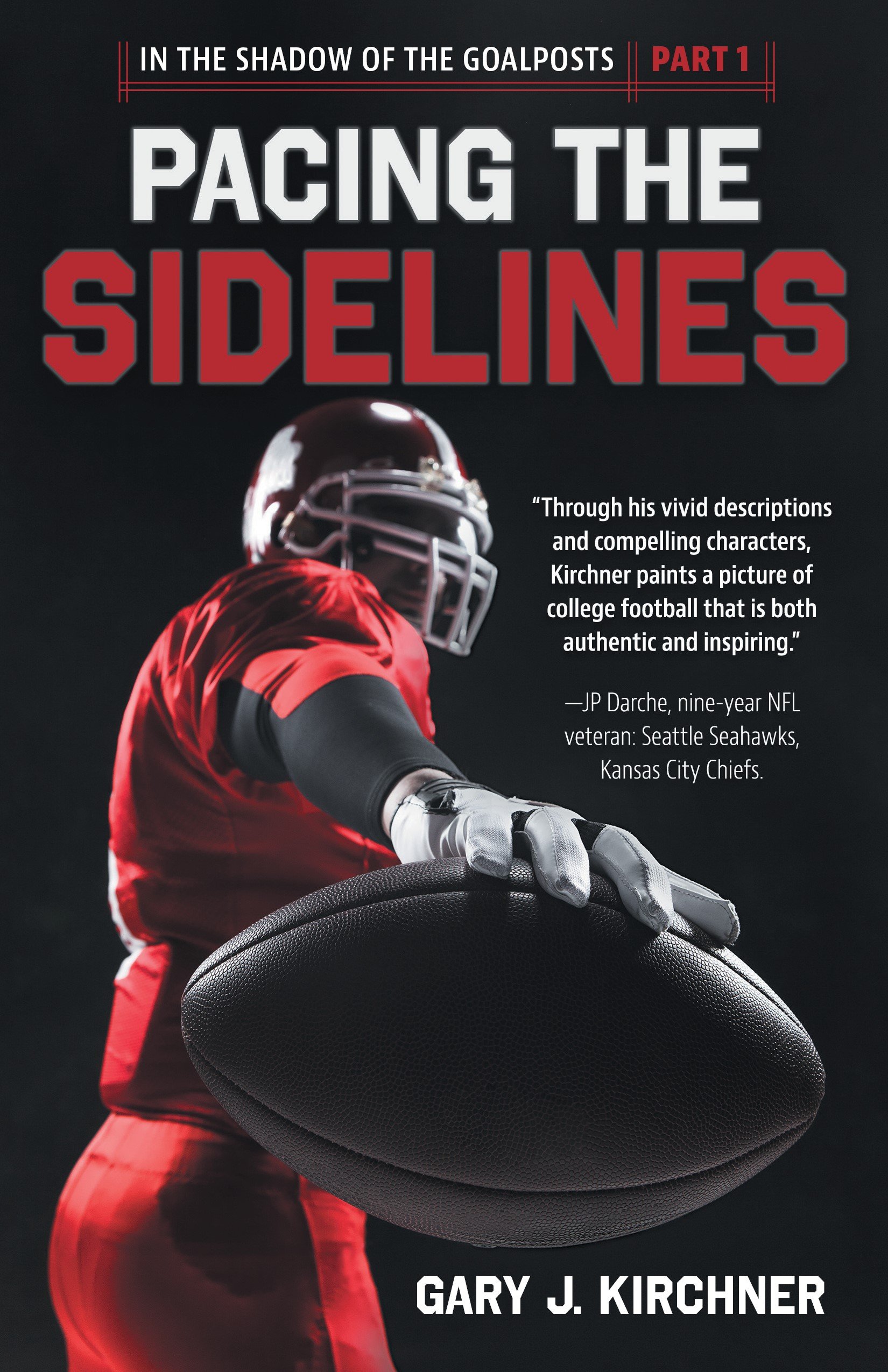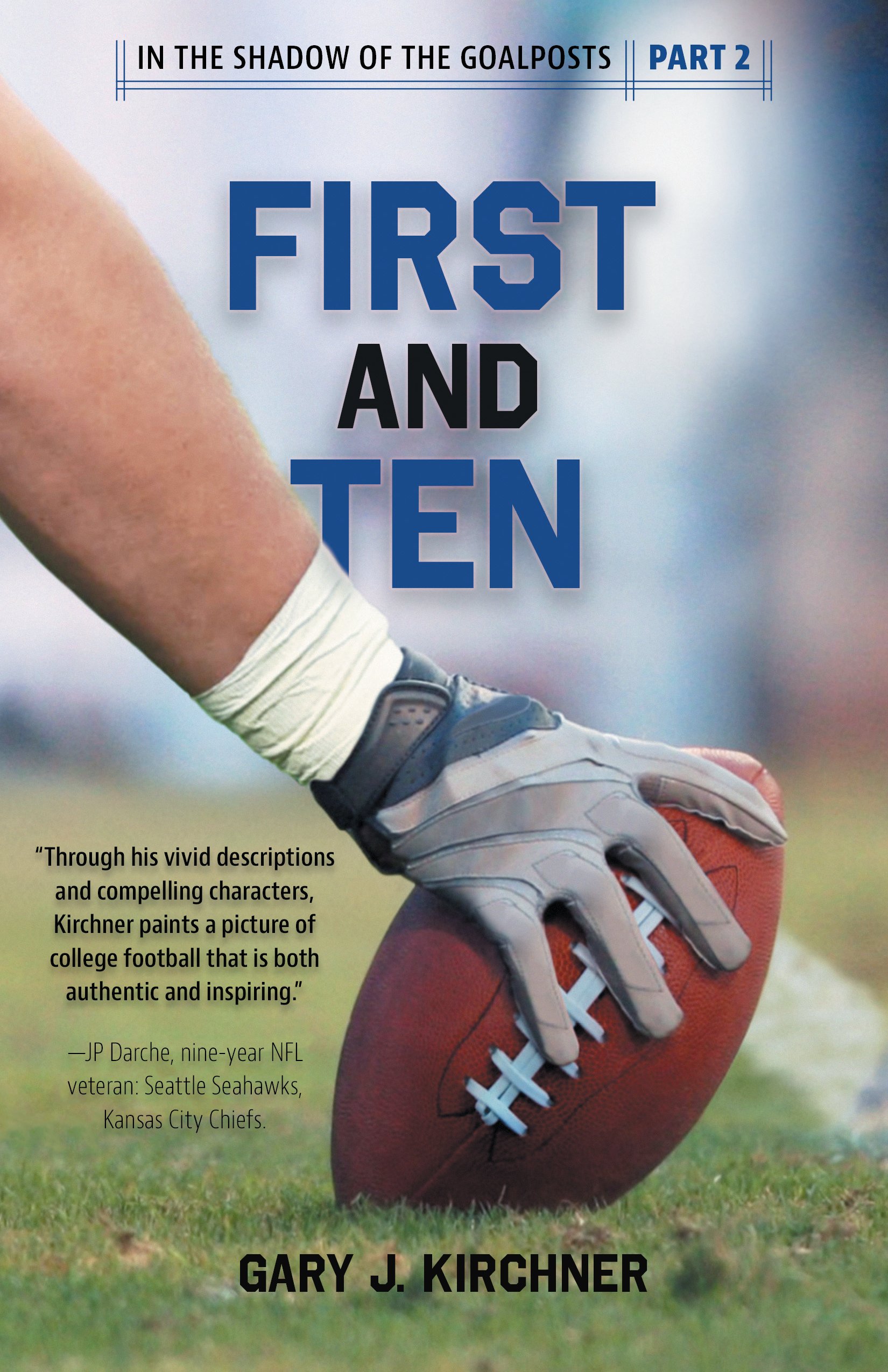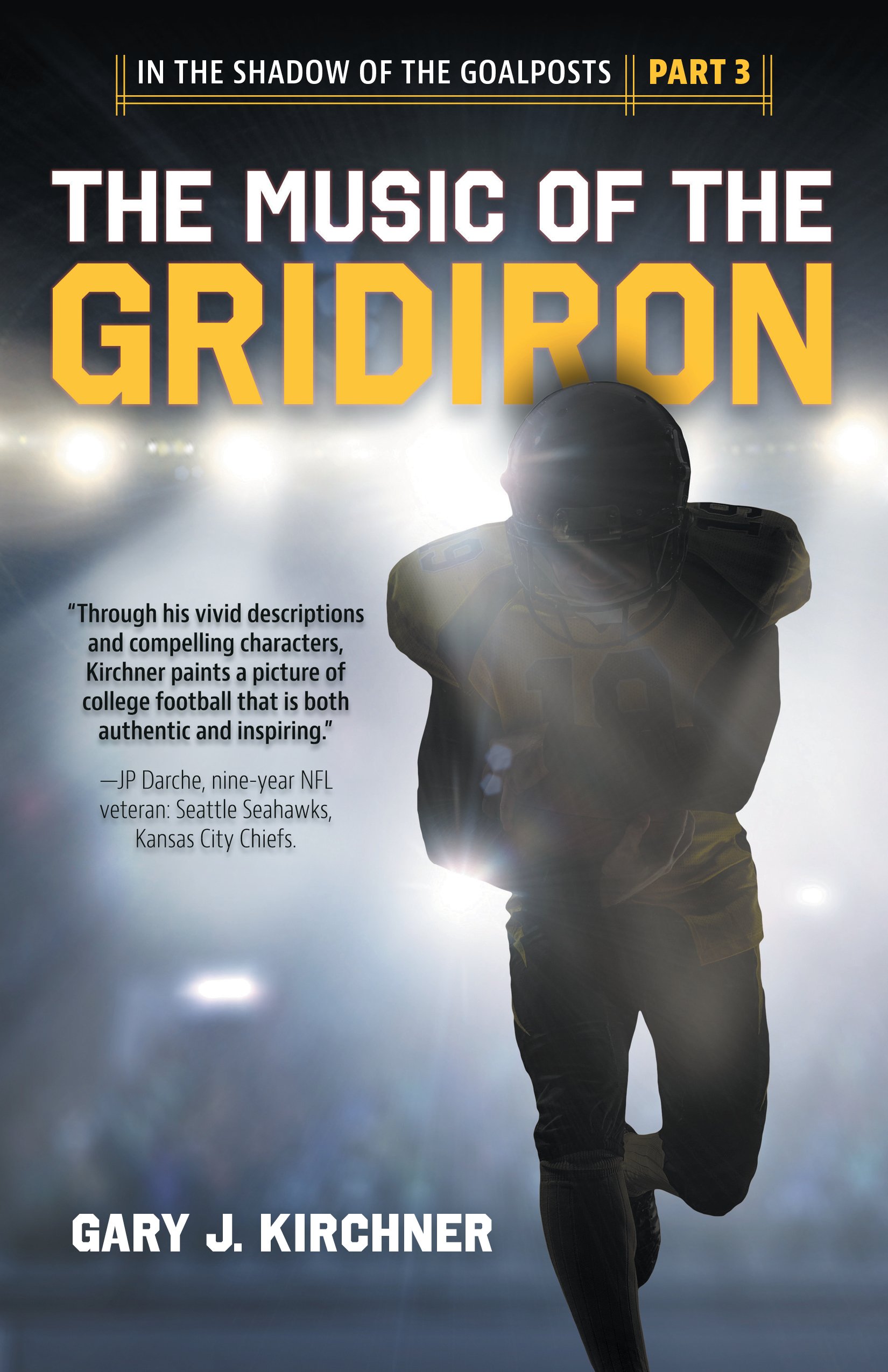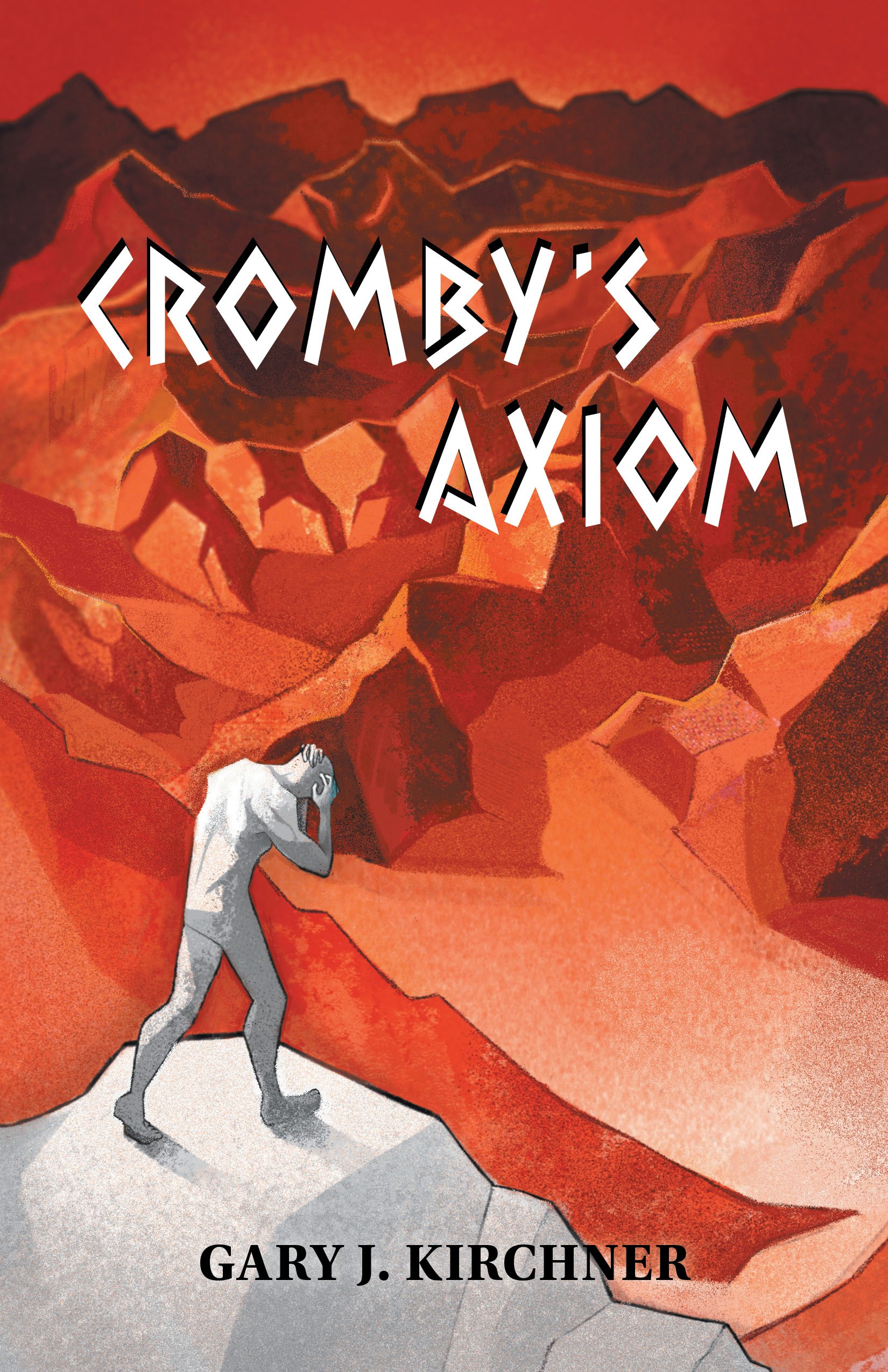Coffee Chat with Gary Kirchner
Pour yourself a nice steaming cup and settle in to get to know Gary Kirchner a little better.
Tell us a bit about yourself.
My career was teaching physics at the high school and college levels, with my own particular interests being astrophysics and the physics of sports. I’ve recently retired to concentrate on my writing career. I’ve also been involved in football for most of my life. I was a linebacker with the McGill Redmen, and when I finished playing I coached at McGill for another 27 years. I like to keep active; my current sports are cross-country skiing and curling. I’ve completed a couple of marathons and about a dozen triathlons. I also play a flute, and my wife was most grateful last Christmas when she received a gift of a pair of earplugs.
How do you take your coffee? Without the coffee part.
What Blank Spaces issue were you first published in? December 2021.
When did you first know you wanted to write? High school, grade eight or grade nine. My mother used to buy me Mad magazine for my birthday. I thought writing for Mad magazine would be a perfect career for me.
What are you reading right now? What is it about and what keeps you coming back to the pages? Not Mad magazine, I’m afraid. I’m presently reading The Buried Giant by Kazuo Ishiguro. Set in post-Arthurian Britain and invoking mild touches of fantasy, the author has brilliantly blended layer upon layer of mystery within a compelling and intelligent story. Can't wait to get back to it.
What role has Blank Spaces played in your creative journey? One of the highlights of my whole writing career was getting a response from Alanna Rusnak saying that my story was going to be published in Blank Spaces. To say it gave a boost to my confidence and to my writing energy stores would be an understatement. My wife wrote me a note which says, “Congratulations! You did it!”, which is still pinned to the door of my workroom. I see it every day.
Tell us a little about the piece Blank Spaces published and how it was received by family, friends, and the greater community? I wrote about the emotional final football play in the career of an offensive lineman. Offensive linemen are as committed, as hard-working, and as disciplined (perhaps more so) as any other players on the team, but they are rarely mentioned by broadcasters, rarely noticed by fans, rarely given credit for big plays made by the team’s stars. I wanted to portray a little bit about their work ethic, their craft, and their emotion. I was very gratified to get feedback from O linemen telling me that I hit the nail on the head.
Why is Canadian content important? One word: culture. In today’s world, with the internet, with travel, with media giants and corporate giants, cultures everywhere are under threat of simply being flooded out, of disappearing beneath the waves, or becoming quaint, lifeless shadows of what once was. This goes whether you’re Estonian or Thai or Canadian. Perhaps even more so in our case because of the proximity of the States. Without a voice, Canadian culture will become a Mountie on a horse.
Where has your creative journey taken you since being published in Blank Spaces? I’ve been fortunate to publish four novels. Cromby’s Axiom, a dystopian fiction which criticizes our addiction to social media and our increasingly shallow society, was published in 2021. The third book of the trilogy, In the Shadow of the Goalposts, the story of an unusual coach at the helm of a university football team, was published this past January.
What does your writing process look like? Most of the time it looks like me sitting and thinking. Sometimes it’s me walking and thinking. I don’t tend to put words down until I’m ready. This isn’t a method I would recommend, but it’s what I’ve always done.
If you could tell your young creative self anything, what would it be? Don’t try so hard. Write to have fun.
Who are your writing influences and how do they motivate you? My writer influence of the day tends to be the last author whose book I really enjoyed. They motivate me out of jealousy: I say, “I wish I’d written that!” My writing, especially early on, often reflected the style and techniques of whichever author I had recently read.
Who is your hero of fiction? If you asked me five different days, I might give five different answers. For some reason, right now I’m thinking of Hank Stamper from Kesey’s Sometimes a Great Notion (played by Paul Newman in the movie). Not because he was a nice guy and certainly not because I share his viewpoints (I don’t), but he was a compelling figure who was tough and believed in his principles.
What do you tell yourself every time it gets hard and you want to quit? “Good thing you’re not doing this for money.”
Do you have any writing rituals that help the words flow? I often go for a walk when I’m stuck. It doesn’t help, but the exercise is great.
What advice do you have for writers struggling to break into the industry? Evaluate your purpose. If it's not to make money, then write what you want to read, not what you think others want to read.
What are your creative goals? Where do you see yourself in five years? I’d like to write in a number of different genres. I know this is not the way to cultivate a following and sell books, but I like the challenge and the variety. In five years I’d like to see myself on the talk-show circuit explaining how being the world’s best-selling author hasn’t changed me, but in reality I’ll probably be sitting at the same desk I always work on, wondering what Facebook is used for.
What are you currently working on? A foray into science fiction. I don’t know if it’s going anywhere yet.
What should we be watching for from you? My next book to be published will be a comic story about a rookie physics teacher trying to survive at a private school. I’m looking forward to it.
Gary was also one of the short-listed authors from the 50/50 Anthology contest we hosted over the summer, and as such, his short story “Wolverine” is being published in the anthology Will There Be a Sunset?, releasing this April.
If you’re a past Blank Spaces contributor and would like to be featured in a virtual coffee chat, please complete our online interview form.
Learn more about Gary’s work that has been featured in Blank Spaces here.



